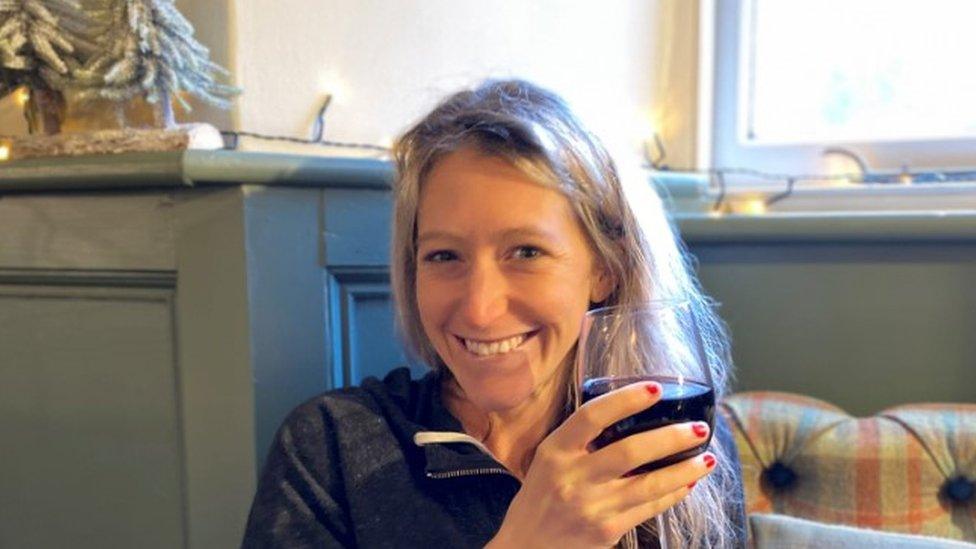Christmas 'tough' for people with eating disorders
- Published
Lara Davies began suffering from eating disorders when she was 14
The Christmas period can be "very difficult" for people with eating disorders to navigate, a former anorexia and bulimia patient says.
Lara Davies says there can be a pressure to enjoy food at this time.
One eating disorder charity said it was braced for a spike in helpline calls over the festive season.
Cardiff University lecturer Dr Marc Williams said Covid and Christmas created "a perfect storm" for those with the problem.
Lara, from Llangedwyn in Powys, said she was 14 when eating disorders "started to take a hold of my life".
She became anorexic first, then bulimic.
The 24-year-old explained this time of year can be harder than most, because it is hard to avoid food.
"No matter where you look, it's always just right in front of your eyes, food, food, food… and when you're feeling really low it's hard to see everyone," she said.
"You get so jealous internally because you want to be happy.
"You want to be enjoying food and when you don't and you're in a bad place, it's very difficult."
She said her advice to people with eating disorders would be to "try not to feel that pressure" and to "do what you want to do".
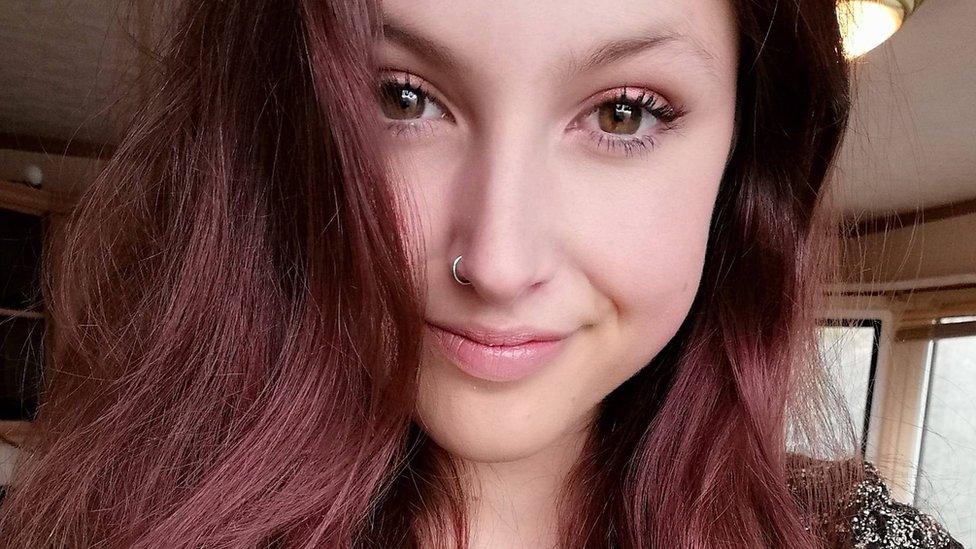
Lara Davies was 14 when she says eating disorders "started to take a hold of my life"
Eating disorder charity Beat in Wales said it saw 901 helpline calls last December and January which was nearly three times as many as the previous year's period, with 408 calls.
The focus on food over the festive season plus the pandemic, added pressure on those with eating disorders, the charity said.
Jo Whitfield, national officer for Beat, said the pandemic played a "massive part" for the rise in people seeking support last Christmas, because they had been separated from friends and family.
"That has been really difficult for people," she said.
She added that the "uncertainty about different restrictions" can affect somebody with an eating disorder.
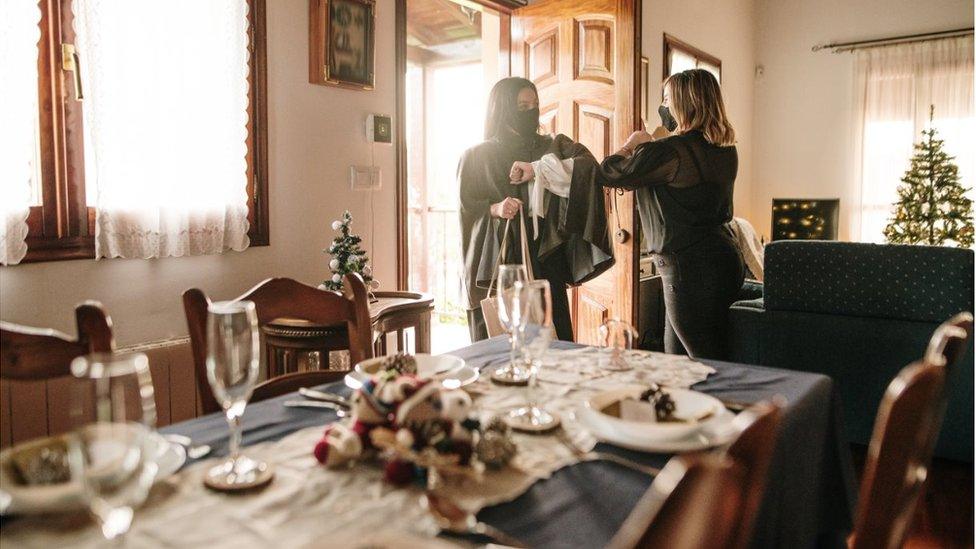
The changing Covid restrictions could add to uncertainty levels for people with eating disorders
Dr Marc Williams, a clinical psychologist and senior lecturer at Cardiff University, who specialises in eating disorders, said that Christmas "at the best of times is difficult" for many people with mental health disorders.
"But with those with eating disorders, because of the focus of the festivities on food, it's especially difficult in many ways," he said.
"And then, with the pandemic context, anything that increases stress levels will intensify the eating disorder and any restrictions on your activities will make it harder for some people to engage in those activities they would have found relaxing or that might have help distract them.
"It's a perfect storm."
He added that images of food and abundance of food could make it difficult as well as eating with others.
"The social element of eating with other people can be quite threatening, because the fear that people might comment on someone's eating - how they are eating, how quickly they are eating or how little they are eating.
"It can be difficult, and those can be triggers for some people."
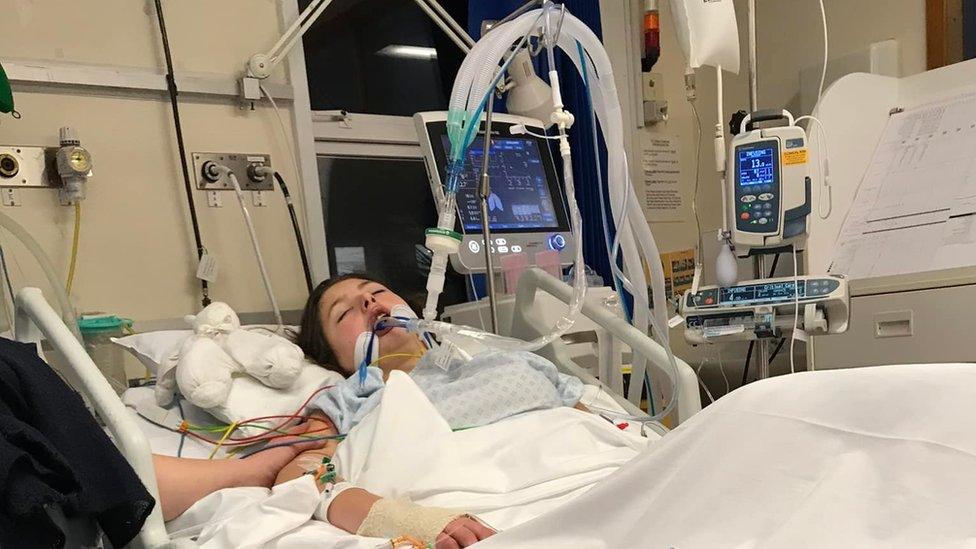
Lara was in hospital after trying to take her life in December 2019
For Lara, food first became an issue in her early teens - due to number of reasons including her parents' split when she was younger, a strained relationship with her family and catching measles, when "negativity set in".
Her parents say they tried to offer support, but at the time, Lara didn't want to listen.
"I played netball for Shropshire and so I was very much into my fitness... I realised that I could lose weight quite quickly and I was getting positive attention for it. And that was the start of the spiral.
"The bigger my clothes got, the better I felt in myself. I felt a sense of achievement… when I got positive attention, I fed off it."
Her struggles with food began to take a toll on her body and she began to become "really weak", with pain in her body and developing signs of malnutrition around her mouth and teeth.
By her early 20s, she said her relationship with food was dominating her life and her unhappiness led to some bad decisions - including, on 22 December 2019, driving home after drinking with friends - after which, she was arrested and held in custody.
Later that day she was taken to hospital after trying to take her life.
"I had been bulimic for a few years... it was so exhausting and I couldn't see myself getting out of that rut, and so the commitment to taking my life was just like an easy exit," she said.
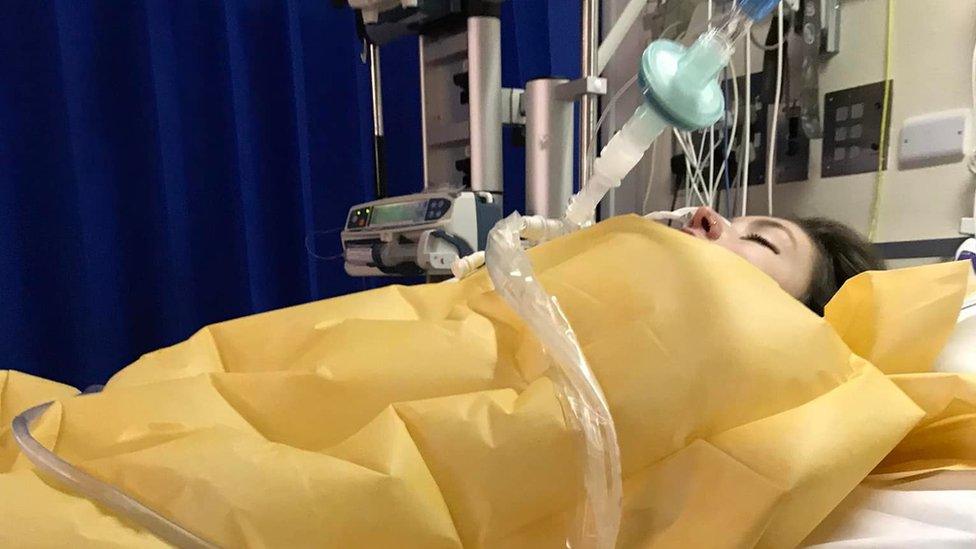
Lara says she could not see how to get out of a rut "and so the commitment to taking my life was just like an easy exit"
But following this her condition began to improve, which she said was helped by her relationship with her parents, and support from them to help her focus on recovering.
Lara now has a healthy relationship with food, and is calling for more people like her to be able to offer counselling to help others.
Asked what advice she would give others who are going through what she did, she said: "I would advise to stay open, to stay honest - with yourself as well as everyone else - and just to keep searching for the individuals that will want to help - because they're out there."
Dr Menna Jones, the outgoing national lead for eating disorders in Wales, said health boards had been seeing a rise in the number of people with eating disorders before the pandemic, but lockdowns had "accelerated" the growth.
She said this growth showed "quite a significant spike" among young people.
"There's been an increased focus on weight and body image and health, which unfortunately some young people have taken to more of an extreme level of preoccupation," she said.
"I'm very concerned about this increasing rise in eating disorders and I hope that we'll be able to manage the demand."
She said some areas have "very long" waiting times for treatment and that additional support was needed to meet demand.
She said the Welsh government had been supportive in trying to help people with eating disorders, but admitted "we're still nowhere near" being able to meet the needs of everyone.
She said it was not known exactly how many people in Wales were affected, and more research was needed to gain an accurate picture.
BBC Action Line also has more details of organisations which can provide advice, information and support for people affected by eating disorders.
Related topics
- Published22 December 2020
